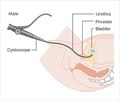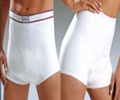Zinc could help the development of new non-antibiotic treatment strategies for bacterial diseases, such as urinary tract infections (UTIs).

‘Bacterial infections that are not cleared by the body’s normal mechanisms are killed by zinc toxicity.’





Dr Kapetanovic, from UQ’s Institute for Molecular Bioscience (IMB), said researchers already knew that zinc was toxic to bacteria. "We confirmed by direct visualization that cells in our immune system known as macrophages deploy zinc to clear bacterial infections," Dr Kapetanovic said.
They also discovered that UPEC has a two-pronged strategy to survive the body’s immune response.
"We found that, compared to non-pathogenic bacteria, UPEC can evade the zinc toxicity response of macrophages, but these bacteria also show enhanced resistance to the toxic effects of the zinc.
"These findings give us clues to how our immune system battles infections, and also potential avenues to develop treatments, such as blocking UPEC’s escape from zinc to make it more sensitive to this metal.
Advertisement
UQ’s School of Chemistry and Molecular Biosciences Dr Minh Duy Phan said the study also identified the full set of UPEC genes that provide protection against zinc toxicity.
Advertisement
IMB PhD student Miss Claudia Stocks said the methods the team used could be applied to the study of other bacterial diseases, not just UTIs.
"Macrophages deploy zinc toxicity against several types of bacteria, such as Mycobacterium tuberculosis, Salmonella and Streptococcus, that aren’t necessarily being cleared from the body by normal mechanisms," Miss Stocks said.
"We developed zinc sensors that can be adapted to study different types of bacteria, bringing us closer to understanding our immune system better and creating therapies for a range of infectious diseases."
The research was published in Proceedings of the National Academy of Sciences USA and funded by Australia’s National Health and Medical Research Council, the Australian Research Counciland Australian Cancer Research Foundation.
Source-Eurekalert












